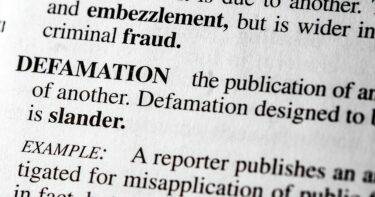
16
Aug 2023
Restrictive Covenants Affecting Land
A covenant is an agreement in a deed by which one party promises to another that they will either do or not do something. A deed is a written agreement that is signed in a particular way.
When the covenant concerns land, the party making the promise is imposing a burden on servient land and the party obtaining the promise is receiving a benefit for dominant land.
A covenant by which one party promises to do something is positive. The burden of a positive covenant does not generally bind the successors in title of the party who made the promise.
A covenant by which one party promises not to do something is negative or restrictive. Although the benefit of a restrictive covenant can be transferred from one party to another, the burden of a restrictive covenant will only bind a successor in the title if:
- the covenant is restrictive;
- the restrictive covenant benefits the dominant land;
- the covenant was intended to burden the servient land; and,
- the owner of the servient land had notice of the covenant prior to purchase.
Where a developer sells plots of land to two or more individuals, restrictive covenants may be enforceable by the owner of one plot against another if:
- there was a common seller;
- the plots of land were within a defined area and subject to mutually binding restrictions;
- these restrictions were intended to be of benefit to all the plots of land; and,
- the buyer of a plot of land is on notice that these restrictions are intended to be bind their plot for the benefit of other plots.
The remedy for breach of a restrictive covenant is damages but an injunction to prevent the breach may be granted if there has been no delay in seeking its enforcement.
A restrictive covenant:
- will be extinguished if the dominant and servient land come into common ownership;
- can be released by deed between the successors in title to the original contracting parties;
- May be modified or discharged upon application to the Upper Tribunal if:
- obsolete;
- it impedes some reasonable use of the servient land; or,
- no harm to the dominant land will be caused.
Simon Ingham qualified as a solicitor in Scotland and now practises in England, specialising in probate and property disputes.
If you have a dispute in England & Wales that relates to a will or inheritance, please e-mail NewEnquiries-ContentiousProbate@chadlaw.co.uk.
Alternatively, if you have a dispute that relates to land or buildings, please e-mail NewEnquiries-PropLit@chadlaw.co.uk.
Otherwise, if you need advice about any dispute – or wish to try and avoid the possibility of disputes arising – please contact us by phone on 0800 015 0340 or e-mail NewEnquiries-Litigation@chadlaw.co.uk.
- Like this ? Share with friends





